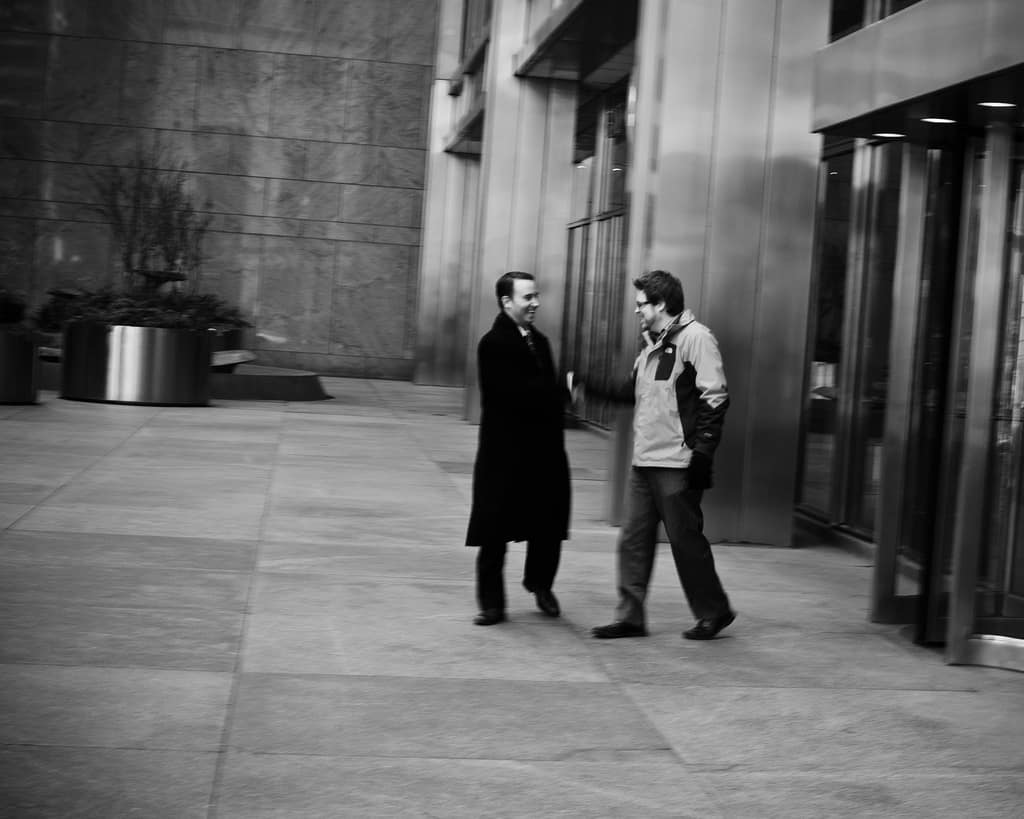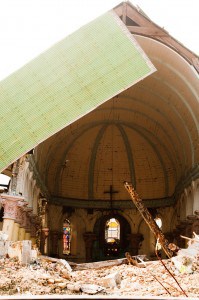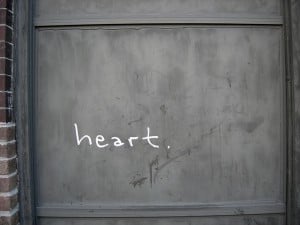I see trees of green,
red roses too,
I see them bloom,
for me and you.
And I think to myself,
what a wonderful world.
We all know that it was Louis Armstrong who, back in the day, sang those lovely words in his sandpaper voice (oh, go ahead and open the link and listen to the song while you read – in this version Louis even explains why he thinks our world actually is wonderful).
But back to Louis’s words. They’ve been with me these past days. I’ve been listening to the song on my computer and in my mind, and especially I’ve been hearing them as I’ve stepped onto planes bound for Nepal one month; Haiti the next. On the first trip, the trip to Nepal, I was able to assist with a medical mission in the small town of Benepa before going on to the village of Nagrakat, where I could step onto the balcony outside my room and look up to the Himalayan Mountains covered in snow.
The second trip, to Haiti, I made in order to help begin laying the foundations of a relationship between Regis (the Jesuit university I work for) and a small Haitian hospital in Gros Morne. It’s a town about four or five hours north of Port-Au-Prince that was was inundated by refugees after the 2010 earthquake. Gros Morne is a town covered in vibrantly colorful paintings, all of which have been done by local artists. The men and women who work behind the counter at the local magazens, the stores, seemingly wanted only to make a few dollars for their families.
But, like my brother Jesuit Jim Keane a few weeks ago, I have a confession to make. So here it is: when I first arrived in these countries I found it difficult – very difficult – to share the feelings Louis’s wonderful words summon up about our bent and broken world.
***
This is what I saw.
I saw buildings falling and rubble on the ground. I saw children starving and families begging for food. I saw men and women with guns and others stealing to stay alive. I saw the sadness of suffering and the hardships of unemployment. And with each sight I asked myself: where is your wonderful world, Louis? Where is it?
When I boarded the plane for home in Port au Prince, the things I’d seen came swimming to the surface of my mind. I had not given them permission, and yet I found myself wondering how it could be that, on two different sides of the earth, the very poor looked so similar. How it could be that the suffering of the people was the same no matter the culture, climate, tradition from which they came. In the end, it seemed to my tired mind that the poor of Haiti and the poor of Nepal were residents of the same land, the land of poverty.
And then the next question followed: are the poor of America citizens of that same land?
***
Back here at home in Denver things seem much more normal.
I go to work on my scheduled days. I put on my scrubs and go to the hospital and make my rounds. I talk with my patients and my colleagues. And I see the poor here, in Denver, too. Sometimes I even let myself notice that my feelings for them are different than my feelings for the third world poor of Nepal or Haiti.
Sometimes I let myself notice how my heart found service to the foreign poor easier than it finds service to the domestic poor that I see in my own hospital.
According to the U.S. Census Bureau the official poverty rate of the U.S.A. is 15.1%. Given our population these slim symbolic characters actually signify that 46.2 million people are in poverty in our great land. But then I compare this to Nepal, where over 30% of the population lives below the poverty line. Or to Haiti, where a scandalous 80% of the population lives below the poverty line (and 54% are considered in abject poverty). In the USA, we have a 9.1% unemployment rate; Nepal has a 46% unemployment rate, and Haiti 40.6% unemployment rate. Does this mean that there is less opportunity in the other countries? I think it does, and I think that these numbers don’t help me overcome my hesitance to serving the poor of Denver. After all, neither Haiti nor Nepal has a government that is supportive of the poor in the least, whereas in our United States some of our past presidents have gone so far as to declare war on poverty itself. It seems to me, sometimes, that the opportunity for education, work and support, broken though they are, ought to be able to loosen these knots of poverty more than they do.
I notice that my heart feels the worst with those who cannot afford a primary care physician. I get judgmental and sometimes frustrated with them at times; find myself wanting them to work harder to get the health insurance they obviously need. Sometimes, as I wash my hands or check their charts, I find myself getting angry at them for taking up “my time” in the emergency room, for taking up space for people who “truly” need emergency care.
And all the while, in the midst of all my un-generous emotions, the Church proclaims a preferential option for these very poor. Our Church quietly insists that each of us, each who has the ability, ought care for our brothers and sisters who go without. This teaching apparently got written down for the first time around the year 80. It comes straight from the Gospel of Matthew:
For I was hungry, and you gave me something to eat; I was thirsty, and you gave me something to drink; I was a stranger, and you invited me in; naked, and you clothed me; I was sick, and you visited me; I was in prison, and you came to me. …Truly I say to you, to the extent that you did it to one of these brothers of mine, even the least, you did it to me. (Matthew 25: 35-40)
And it comes again three hundred and some odd years later, this time from St. Augustine, who wrote, “God does not demand much of you. He asks back what he gave you, and from him you take what is enough for you. The superfluities of the rich are the necessities of the poor. When you possess superfluities, you possess what belongs to others.1
And skip ahead again to Ignatius’ candlelit rooms in Rome, near the year 1550 when he was writing the Constitutions of the Society of Jesus. He wrote there about how Jesuits ought to give 75% of what we ourselves are given to those in need. There are many other examples that teach the same.
They pile up on me, these teachings; make me think that I should find it easier to follow Christ now that I know what I ought to be doing. But knowing how to do something is a lot easier than doing it. Or at least that’s what my frustrated heart seems to be saying as I make my way through my normal days in the hospital.
So what do I do with my judgmental heart? When the poor come to the Emergency Department, at least I know what hidden judgments will be present. I may not be able to stanch my feelings, but I can recognize them, ask the Lord to give me patience and strength. I can try again to care for this patient as if I were caring for a member of my own family. I can try to uncover the struggle that this patient is going through… maybe she works hard and still can’t afford health insurance… maybe he has a disability that keeps him from working and the aide that comes from the government just isn’t enough… maybe a million things. I can try to remember how privileged I am to have gone to nursing school. I can try to remember that I consider it my duty to share what I have with the poor, and that I ought to respect the human dignity of this person before me.
And I can try not to judge myself for my judgmental heart, for having to go through this same challenge every time I work with the poor.
***
So it’s back to Louis and his beautiful world once again. If you listened to the Louis’ words, he tells the “young people” that love is the answer to making the world wonderful. The reality of the situation is that poverty will always be present in our world. The real challenge for me, then, is this: can I love these poor others as our own brothers and sisters? Can I do for the least them as Christ has commanded?
I know what you are thinking (or maybe I don’t and it’s just me thinking it), “Jason, these are all nice thoughts but how do we make it happen?” Sadly, I haven’t overcome my judgmental thoughts, so I am unable to come up with an answer for all of us. All I can do is continue to try to change my way of thinking and pray that God will give me the grace to love the poor as Christ has loved me, judgmental heart and all.
— — — — —
- Exposition on Psalm 147, 12 – http://www.midwestaugustinians.org/justpaxprefopt_aug.html. ↩





